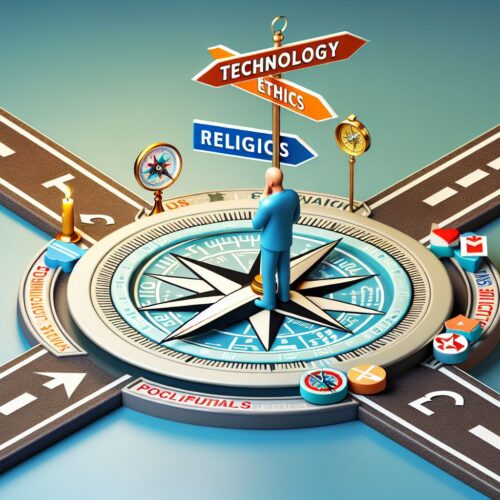In today’s fast-paced world, technology plays a pivotal role in shaping various aspects of our lives, including politics. However, as we witness the increasing integration of technology in political processes, it raises important ethical questions that deserve our attention. One intriguing aspect that often goes unnoticed is the influence of religion on shaping ethical considerations in the realm of technology and politics.
Religious Values Intersecting with Technological Advancements
Religion has long been a guiding force for moral and ethical decisions, providing a framework for individuals and societies to navigate complex issues. When we consider the rapid advancements in technology, from AI and automation to data privacy and surveillance, it is crucial to examine how religious values intersect with these developments.
For instance, certain religious traditions emphasize the importance of privacy, dignity, and human rights. These values can clash with the increasing surveillance capabilities of technology, leading to debates on the ethical implications of mass surveillance programs and data collection by governments. How do we balance the need for security with the right to privacy, especially in a world where technology can blur the lines between public safety and personal freedom?
Striking a Balance Between Innovation and Ethical Concerns
The rapid pace of technological innovation often outstrips our ability to fully comprehend its ethical implications. In the realm of politics, this can manifest in debates over the use of algorithms in decision-making processes, the spread of misinformation through social media platforms, and the risk of technological manipulation in elections. How do we ensure that technology is used ethically and aligns with our shared values, including those derived from religious teachings?
Religious leaders and ethicists can play a crucial role in fostering discussions around the ethical use of technology in politics. By drawing on the moral teachings of their respective traditions, they can provide insights into how we can navigate these complex issues while upholding ethical standards. Moreover, religious communities can serve as advocates for policies that prioritize human dignity, justice, and fairness in the digital age.
Conclusion: Towards an Ethical Framework for Technology in Politics
As we navigate the intricate relationship between technology, ethics, and religion in politics, it is essential to cultivate a nuanced understanding of these interconnected realms. By engaging in thoughtful discussions, leveraging the ethical insights offered by religious traditions, and advocating for policies that prioritize human well-being, we can strive towards a more ethical framework for technology in politics. Let us embrace the opportunity to shape a future where technological advancements align with our shared values and ethical principles, ushering in a more just and inclusive society.
